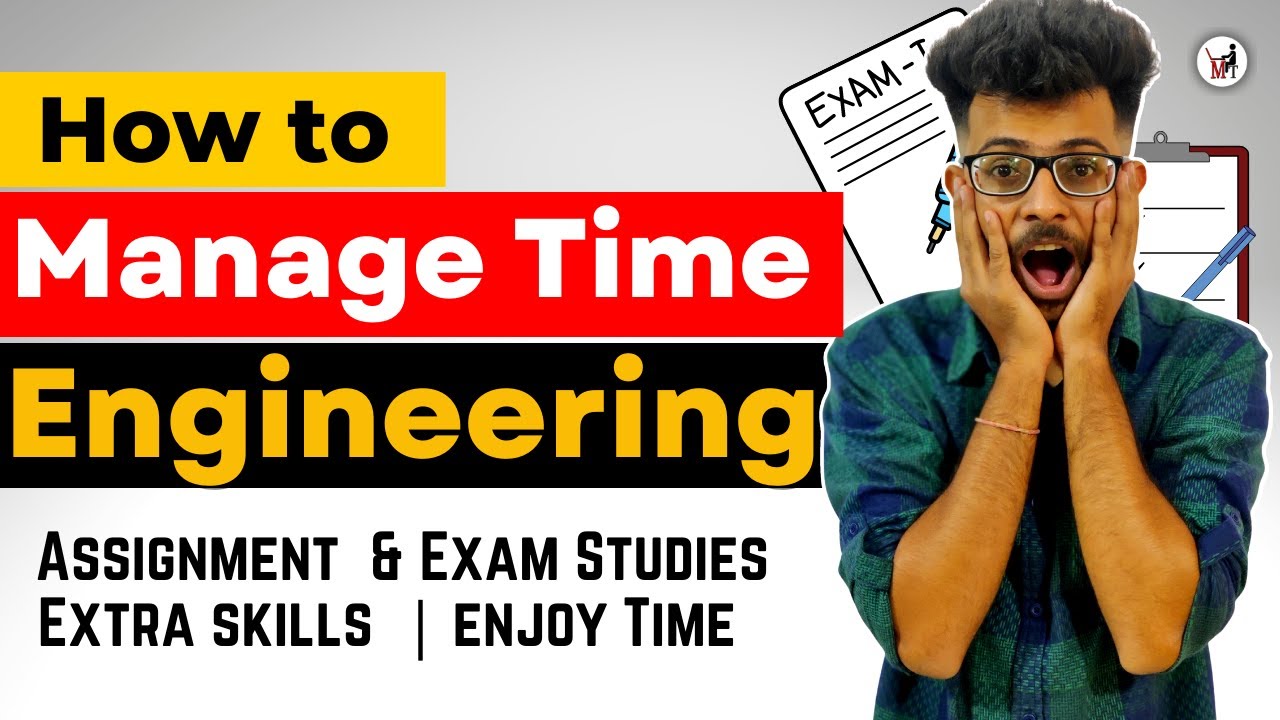How to Read Your Textbooks More Efficiently - College Info Geek
Summary
TLDRIn this College Info Geek video, Thomas outlines strategies for mastering college reading assignments. He emphasizes the importance of understanding why you're reading and tailoring your approach to the type of assessment, such as multiple choice tests or essay writing. Thomas introduces the concept of active reading, suggesting daily reading habits and note-taking to enhance retention and application of knowledge. He also hints at upcoming techniques for active reading and encourages viewers to subscribe for more.
Takeaways
- 📚 **Mastery of Study Techniques**: The key to success in college is not just knowing what to study, but also how to study it effectively.
- 🎯 **Focused Learning**: Prioritize learning the right information from readings, focusing on what's important and relevant.
- 📈 **Retention and Application**: Aim to retain information for long-term use and apply it effectively in assessments.
- 🕒 **Efficient Study Time**: Reduce the time spent on reading by focusing on strategic and efficient study methods.
- 🤔 **Understanding 'Why'**: Reflect on the purpose of reading assignments to align study strategies with assessment types.
- 🧠 **Avoid Reading Zombies**: Don't just read to meet a quota; engage with the material to extract and retain key information.
- 📊 **Assessment-Driven Reading**: Tailor your reading approach based on the type of assessment you'll face, such as multiple choice tests or essay writing.
- 📝 **Active Reading**: Engage with the text actively, similar to an intellectual conversation, rather than passively skimming through.
- 📅 **Daily Reading Habit**: Develop a consistent daily reading habit to maintain a steady flow of learning and information retention.
- 📋 **Active Note-Taking**: Practice active reading by taking concise notes or creating summaries to reinforce learning and understanding.
Q & A
What is the main focus of the video by Thomas from College Info Geek?
-The main focus of the video is to discuss strategies for effectively tackling college reading assignments, emphasizing the importance of knowing not only what to study but also how to study it.
What are the three main goals Thomas suggests for college students when approaching their readings?
-The three main goals are: 1) Learning the right information from readings, 2) Retaining that information for as long as possible, and 3) Reducing study time.
Why is understanding the 'why' behind a reading assignment important according to Thomas?
-Understanding the 'why' behind a reading assignment is important because it helps students to be strategic readers, using different strategies for different reading purposes, which are defined by the assessments they will face in class.
What are the four common reasons Thomas lists for doing textbook readings?
-The four common reasons are: 1) Preparing for a multiple choice test, 2) Writing essays, 3) Evaluating data in labs, and 4) Summarizing research for class presentations and reports.
How does the type of assessment dictate what kind of information students should focus on during their readings?
-For a multiple choice test, students should focus on details and take concise notes to study later. For essay writing, a thorough understanding of main ideas and the ability to communicate them in their own words is more important.
What is the tip Thomas gives for not becoming a 'reading zombie'?
-The tip is to know what information the brain needs to extract from the reading and to focus on that, instead of just mechanically reading through the pages.
Why does Thomas suggest not reading textbooks like a newspaper?
-Thomas suggests not reading textbooks like a newspaper because newspaper readers are not reading to apply what they learn, whereas college students should read for application and understanding.
What is the concept of 'active reading' as discussed in the video?
-Active reading is a method of engaging with the material by listening eagerly, contributing one's own thoughts, and creating new information through interaction with the text, which is crucial for retaining and applying what is learned.
What are the two habits Thomas recommends for textbook readings?
-The two habits are: 1) Reading daily to establish a consistent reading habit, and 2) Writing down a small amount of notes or creating a summary for each reading to practice active reading.
How does Thomas suggest incorporating rewards into the reading habit?
-Thomas suggests building a small reward into the habit loop, such as ticking off a daily habit or engaging in a fun activity like watching a TV show or playing a video game, to reinforce the positive feeling from completing the reading.
Outlines

This section is available to paid users only. Please upgrade to access this part.
Upgrade NowMindmap

This section is available to paid users only. Please upgrade to access this part.
Upgrade NowKeywords

This section is available to paid users only. Please upgrade to access this part.
Upgrade NowHighlights

This section is available to paid users only. Please upgrade to access this part.
Upgrade NowTranscripts

This section is available to paid users only. Please upgrade to access this part.
Upgrade NowBrowse More Related Video

Crash Course Study Skills Preview

MOOC USSV101x | Active Reading and Note-Taking | Introduction

How to Manage Time in College 😰😱🤯 [ Assignment | Lectures | Exams | Extra Skills ]

Ten Things Serious Pianists Do Every Day

Reading Assignments: Crash Course Study Skills #2

how I STAY ORGANIZED for my COLLEGE CLASSES + how you can too (from a straight-A COLLEGE SENIOR)
5.0 / 5 (0 votes)